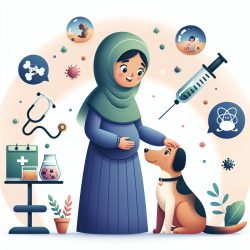Understanding the Impact of Pet Ownership on Pregnancy
As practitioners dedicated to improving outcomes for children, it is crucial to stay informed about the latest research that could impact maternal and child health. A recent study titled "Association between Pet Ownership and Threatened Abortion in Pregnant Women: The China Birth Cohort Study" provides valuable insights into the potential risks associated with pet ownership during pregnancy.
Key Findings from the Study
The study, conducted across 18 provinces in China, involved over 84,000 pregnant women and investigated the relationship between pet ownership and threatened abortion (TA). The results indicated that pet ownership, whether involving close contact with pets or not, was associated with a higher risk of TA. Specifically, owning cats or dogs increased the odds of TA, with stronger associations observed among women who were overweight, had lower education levels, or lower household income.
Implications for Practitioners
For practitioners, these findings highlight the importance of considering environmental factors, such as pet ownership, when assessing pregnancy risks. Here are some actionable steps to consider:
- Risk Assessment: Incorporate questions about pet ownership into prenatal assessments to identify potential risks early.
- Education: Educate expectant mothers about the potential risks associated with pet ownership during pregnancy, especially for those in higher-risk categories.
- Further Research: Encourage further research to explore the mechanisms behind these associations and develop guidelines for safe pet interactions during pregnancy.
Encouraging Further Research
While this study provides significant insights, it also opens the door for further research. Understanding the biological mechanisms that link pet ownership to TA could lead to more targeted interventions. Additionally, exploring the role of different pet species and the nature of human-animal interactions could refine our understanding of these risks.
Conclusion
The association between pet ownership and threatened abortion is an important consideration for practitioners working with pregnant women. By integrating these findings into practice, we can better support maternal and child health outcomes. For those interested in delving deeper into this research, I encourage you to read the original study.
To read the original research paper, please follow this link: Association between Pet Ownership and Threatened Abortion in Pregnant Women: The China Birth Cohort Study.










